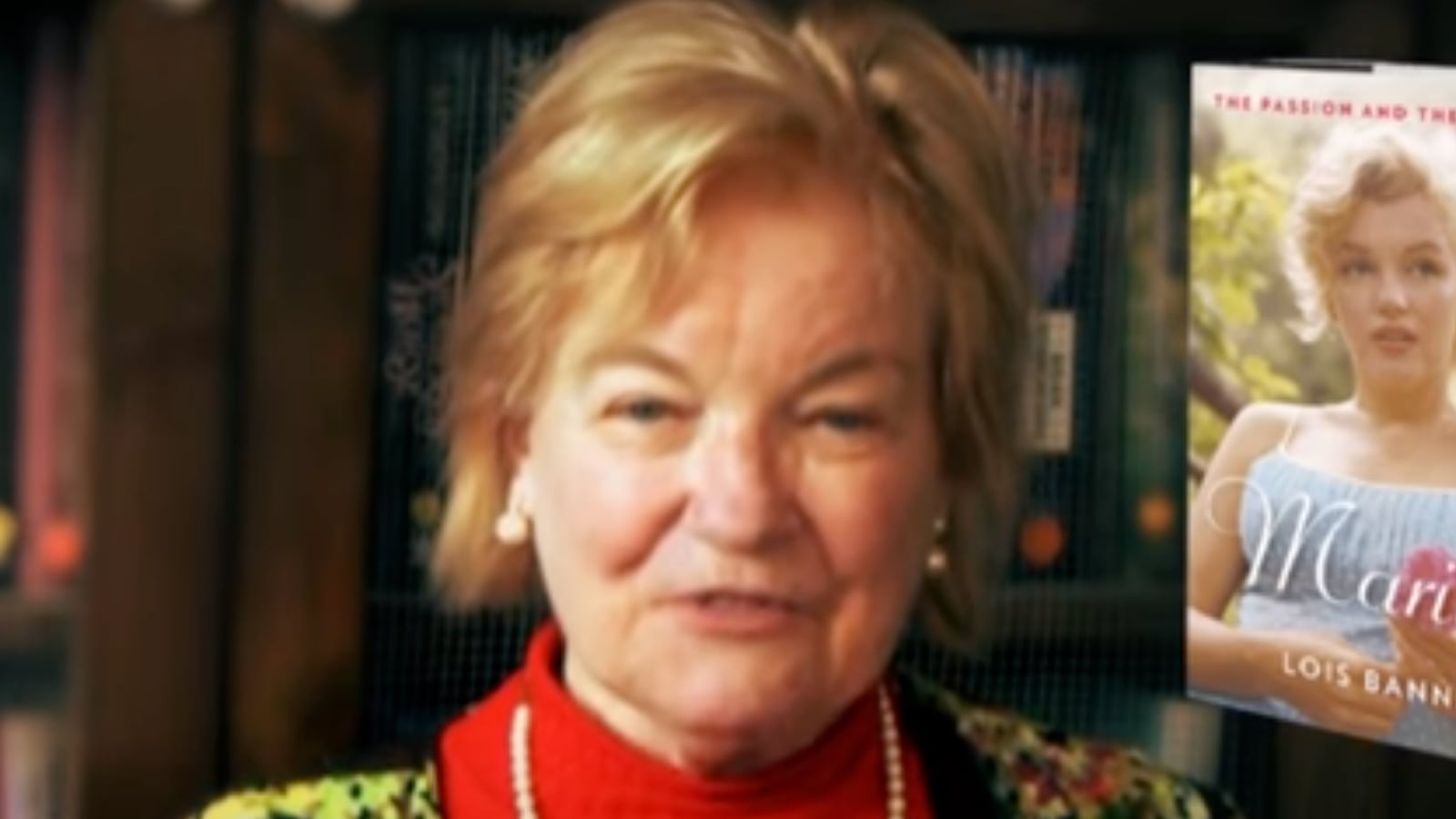A conference for female historians this weekend was plunged into turmoil when a prominent white academic speaking at the main event said her professional life would have been easier if she were Black.
She was identified by attendees of the Berkshire Conference of Women Historians, on social media and in interviews, as USC professor emerita of history Lois Banner, who co-founded the triennial event in the 1970s.
Banner—author of a 2012 biography of Marilyn Monroe—reportedly also said she wished she was a lesbian because they were good at building community and organizing. She did not respond to a request for comment.
“She was immediately called out for her blatantly racist remarks, and refused to apologize, let alone listen, to the reason why her remarks were horrifying wrong [sic]. ‘You won’t change my mind, I’m 84 years old,’” Stephanie Narrow, a doctoral student who attended the Friday night plenary session, tweeted.
“The room is shaken, it’s palpable,” Narrow added.
Banner’s speech came after historian Deborah Gray White of Rutgers University had addressed the crowd on the subject of Black women in the profession.
Paul Renfro of Florida State University said Banner’s comments were tonally off and rambling even before she “made this allusion to this desire that she’s always had, to have dark skin, which is very, very, very problematic. ”
“And so when that happened, the awkward, sort of strange response that many in the audience had to the remarks that came before kind of mutated into almost sort of just complete discomfort and revulsion,” Renfro told The Daily Beast. “Some people gasped audibly, and some people began to walk out.”
He said a white woman in the audience shouted at Banner that she had said something racist and Banner denied it. People of color began to walk out and Renfro said he left, too.
After Banner’s speech, conference co-president Barbara Molony took the stage and “apologized” and “condemned” Banner’s “racist” statement, according to Leisa Meyer, a Berks trustee.
She then called for a town hall meeting to discuss the situation and “ended by saying the Berks would be working on doing everything possible to make sure racist comments were not part of future meetings and would develop plans of action focused on restorative justice and to create an environment in which no one would be subjected racist or homophobic remarks and that every attendee would feel a sense of belonging,” Meyer told The Daily Beast in an email.
After a break, Deidre Cooper Owens, a Black historian at the University of Nebraska, took the podium and denounced her remarks.
“The Berks Conference was a beautiful one until it was soiled by Lois Banner’s hatefully racist comments. Yes, I did speak out forcefully against her vitriol because she needed to keep Black women’s name out of her mouth,” Cooper Owens later tweeted.
“More urgently, I needed that room to acknowledge the strength, brilliance, and bravery of Deborah Gray White, period. I refused to let a bigoted racist take away from Deborah’s powerfully truthful speech.”
The conference tweeted that night that its officers did not “condone or support the inappropriate remarks made by one of the speakers tonight” and promised a formal statement. Some chastised the organization for not naming Banner in the tweet or making a more forceful condemnation.
The group convened a “talking session” to discuss Banner’s comments the next day and afterward tweeted that “the board and trustees listened, took careful notes, and are planning action. The conversation is not over and the board will have a statement and a concrete action plan soon.”
The conversation, meanwhile, was already percolating on Twitter.
Princeton professor Tera Hunter, who did not attend the conference, called it “another epic outburst of racism in feminist spaces that will go down as infamous in a long history.” Colorado University assistant professor Ashleigh Lawrence-Sanders wrote that Banner’s speech should not be dismissed as “comments as from a bygone era.”
“Many of us have heard similarly from grad colleagues or faculty colleagues. Many, many more think the very same silently,” she tweeted.
Editor’s Note: This story has been updated to reflect that Berks co-president Barbara Molony condemned Banner’s remarks from the stage after her speech.






